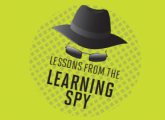Te question of how this environment of electronic media and the ever-present internet will affect school libraries is one that intrigues me. I certainly struggle to envisage a future without libraries and librarians in secondary schools at all – though they may no longer be the hushed areas full of bookshelves and tables of our past. In fact, I rather hope they are not that now; although there is always a place for a study space that allows quiet work and reflection. I’m not sure they will continue to be called libraries, either – we are already seeing ‘discovery centres’, ‘learning resource centres’ (isn’t that a flat phrase?), ‘hubs’, ‘makerspaces’ and, with a very retro feel, ‘reading rooms’. The name is irrelevant, in any case – as long as they provide the individual service that the school requires to support the reading, teaching and learning that happens in that particular community.
The physical world
The most fascinating development I am seeing at the moment is the integration of all media into traditional library spaces, so that they become creative, collaborative and social areas that allow the students and staff to work together, and individually. Libraries will need an added flexibility in their design and layout in the future, as each student and group will want something different from the space. But the librarian will remain the absolute key to the whole; helping the unwary or overenthusiastic student find the right information, and form the right question to ask of the web.
In the past a bank of computers in the library was integration; now laptops and wifi are the norm, but with the rapid developments of tablets and phone technologies might the room, the books, and even the librarian become redundant? Absolutely not! There are instances where titles (particularly textbooks) required for a short time may be more readily available as ebooks; and there will always be the individual who enjoys above all the convenience and adaptability of his or her ereader or tablet – but I am convinced there will always be the need for physical books. They are always available, regardless of power needs, battery life and software integration – and the serendipity of someone giving you a battered paperback that’s exactly what you didn’t know you needed or wanted is not so easy (and, in fact, often illegal dependant on the rights and terms and conditions attached to ebooks) if the title is on his or her own device.
Trained to help
In the short term I do feel we will start to see many more schools using ebooks for reading or information needs, but there are still huge issues in the publishing industry regarding these relatively new formats that have to be resolved – and this is the case worldwide, not just here in the UK, so it may take some years before we are in a position to have easy lending of all ebooks across all platforms in all schools. Moreover, the fact that there are ebooks offered most definitely does not do away with need for a trained librarian, whose skills are still vital in the selection and organisation of those eresources, never mind the teaching and guidance they do with students around the use of them, physical resources and other online sources.
Special space
There have been library management systems available electronically for many years now – and most secondary school libraries will use these already to organise their resources whether the material listed is physical or electronic. Indeed, many establishments are now moving to web hosted systems, as this means students and staff can access the resources 24/7, from anywhere, on any device (as long as they have the internet).
These are exciting times, then, but in all of this we must not lose the fact that the library is also a much loved space in schools – as a respite, a safe area, somewhere away from the bustle of a busy school and the pressures of a particular day. This safety valve must not be overlooked, nor the fact that the librarian is often an agony aunt or counsellor for students in some of life’s difficult choices and situations. Schools must not lose all of these benefits in their quest for economy, but instead, develop a library offering that makes the most of technological advances whilst supporting the needs and priorities for their staff and students – and above all, keeping that all-important human touch.
About the author
Tricia Adams, BA MCLIP FRSA, has worked in several sectors including government libraries and as self-employed information specialist; a primary school librarian; a public librarian; and manager of a Schools’ Library Service. She has been director of the School Library Association, an independent charity, since 2008.










